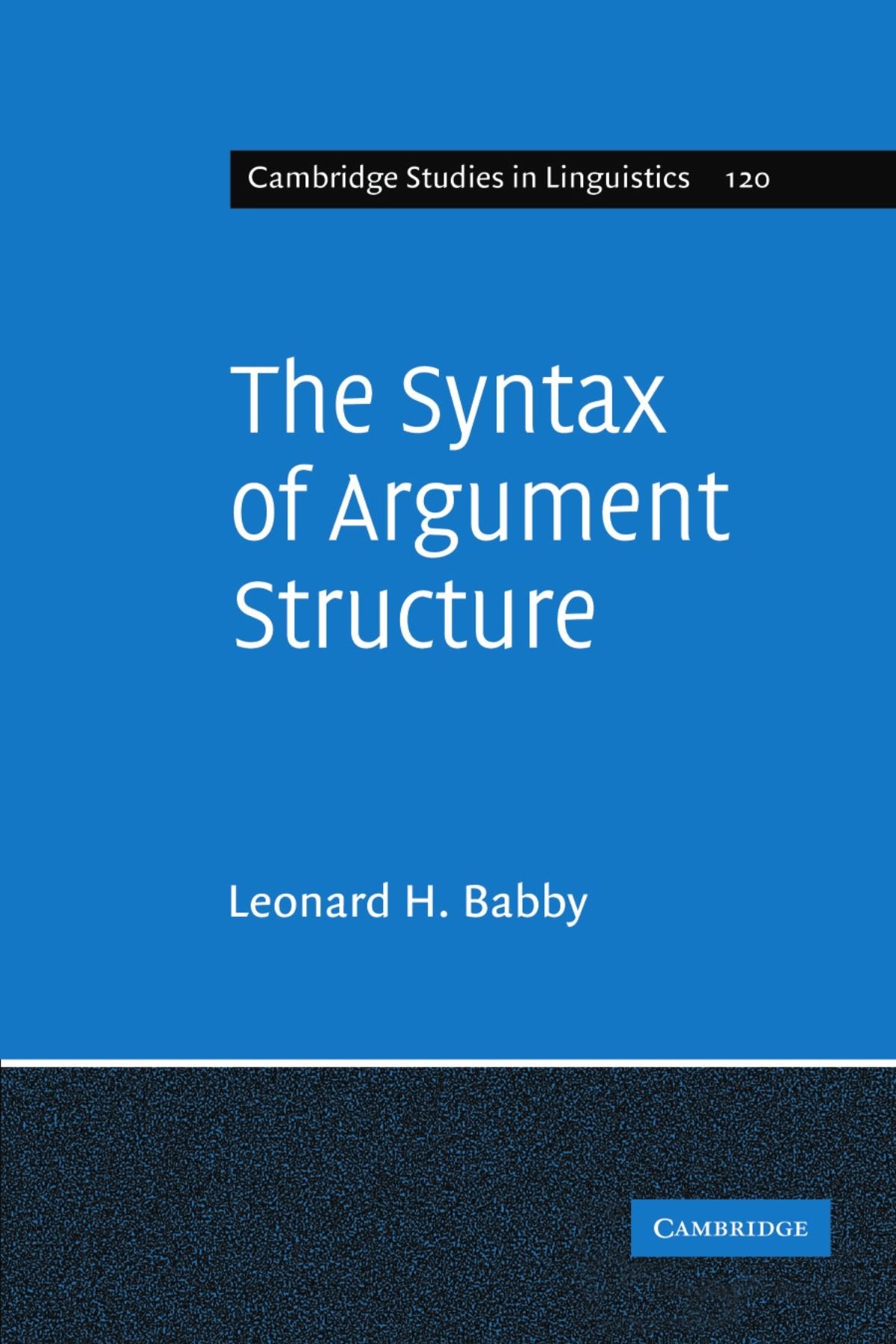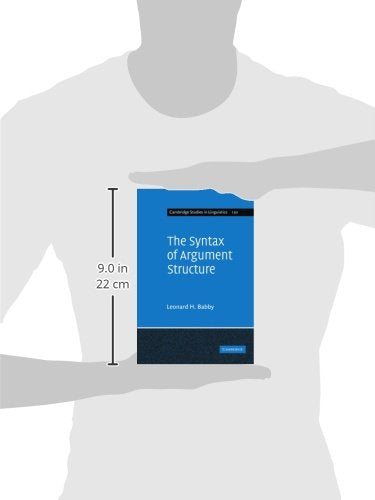The Syntax of Argument Structure: 120 (Cambridge Studies in Linguistics)
The Syntax of Argument Structure: 120 (Cambridge Studies in Linguistics) is backordered and will ship as soon as it is back in stock.
Couldn't load pickup availability
Genuine Products Guarantee
Genuine Products Guarantee
We guarantee 100% genuine products, and if proven otherwise, we will compensate you with 10 times the product's cost.
Delivery and Shipping
Delivery and Shipping
Products are generally ready for dispatch within 1 day and typically reach you in 3 to 5 days.
Book Details
-
Author: Leonard H. Babby
-
Brand: Cambridge University Press
-
Binding: Paperback
-
Format: Import
-
Number of Pages: 326
-
Release Date: 17-02-2011
-
Languages: English
-
ISBN: 9780521182331
About the Book
In this thought-provoking work, Leonard H. Babby presents a compelling theory on the argument structure of verbs in natural languages. According to Babby, each verb is associated with a specific set of arguments that are not simply predictable from the verb’s meaning. These arguments, which include the subject, direct object, and other sentence elements, are realized syntactically and are essential in forming a grammatically correct sentence.
Babby argues that the argument structure of verbs has a universal hierarchical composition that directly determines case and grammatical relations within a sentence. This theory is based on the observation that the core grammatical relations in simple sentences are essentially identical across all human languages, regardless of language family or type.
The book explores the rigid hierarchical organization of argument structures through empirical analysis, primarily using examples from Russian— a language with a complex inflectional system, free word order, and no obligatory determiners, making it the typological opposite of English. Babby's work provides a cross-linguistic perspective on syntactic theory and offers valuable insights into the study of syntax, case marking, and the underlying structure of languages.







